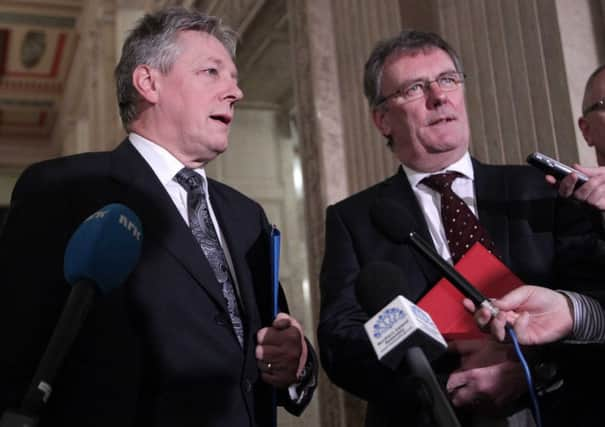‘Transfers’ between the unionist parties could offer alternative


These are priority solutions to problems related to these areas which would help solve issues arising from latent sectarianism, bigotry, segregation and community relations. Cookie-cutter unionism based on old recipes no longer offers relevance or appeal to a large swathe of the electorate.
Unionism should be building interdependence and universal values but you can’t re-construct if you’re unwilling to de-construct. Rather, it seems the greater and more buoyant voice within the UUP is that of Protestant unionists rather than those unionists who happen to be Protestant but believe unionism must be defined by more than cultural, communal or factional identities and move beyond the fabric loyalism of banners or ulster ties.
Advertisement
Hide AdAdvertisement
Hide AdThere must be those within who feel uncomfortable at the party’s leadership on flags, parades and the past. Haass is challenging and each party has been guilty of seeking to find common ground as close as possible to its own position but radical and creative unionism should be leading everyone in the community in critically examining where they stood in the conflict. Outcomes must be achievable and permanent. This requires leadership that is transforming rather than managing, morally robust yet redemptive and reconciliatory.
The UUP seems content to indulge in point scoring and to be fair to Mike Nesbitt, he has from his position as OFMDFM Committee Chair managed to expose some of the failings and abuses of power within the Assembly. However, on many important issues the UUP has moved closer to the DUP and TUV and to judge from the comments of some MLAs in the Assembly is trying to outdo both. In addition, the UUP remains within the Executive and fails to fully address the need for review, not least opposition and the growing disillusionment of the electorate with the process.
Promising to deliver and do what’s best for Northern Ireland within a failing and flawed process is akin to trying to climb the ladder to success but doing so whilst leaning it against the wrong wall. The UUP might be well served by arranging an exchange with the DUP whereby those within each party could be permitted to cross over and find a home most suited to their politics. One party would probably become smaller but in offering alternative choices to the voter might grow and bring real solutions to the problems faced by an electorate currently disenfranchised. Now that Alliance are likely to be asked if they are ‘nationalist’ or ‘unionist’ Alliance there is a vacuum. If there was one unionist party tomorrow, there would be two the next day so better to have these with clearly differentiated and articulated policies reflecting the vision of a collective leadership rather than a situation where the worst conflict-prone traits of one narrow and tribal party comes to define both.